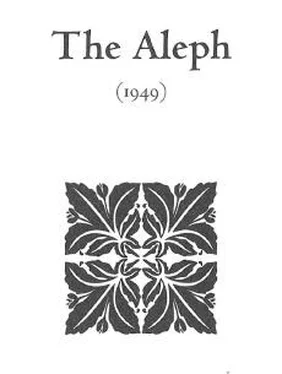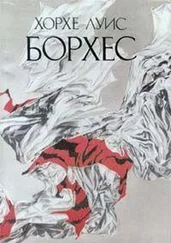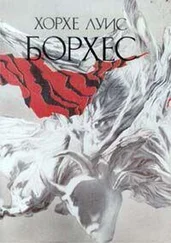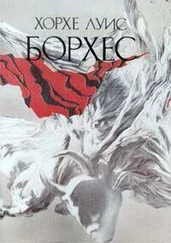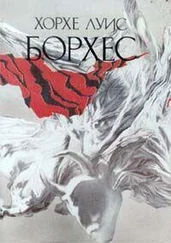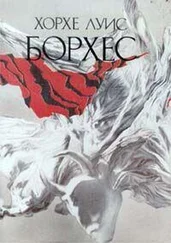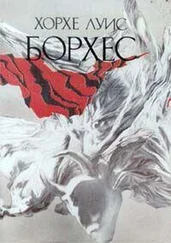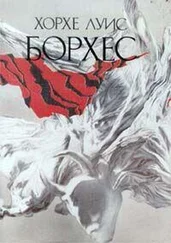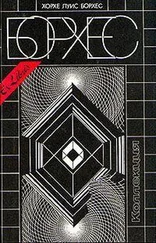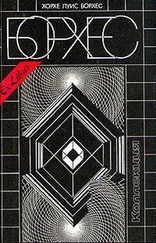Хорхе Борхес - Collected Fictions
Здесь есть возможность читать онлайн «Хорхе Борхес - Collected Fictions» весь текст электронной книги совершенно бесплатно (целиком полную версию без сокращений). В некоторых случаях можно слушать аудио, скачать через торрент в формате fb2 и присутствует краткое содержание. Год выпуска: 1999, ISBN: 1999, Издательство: Penguin (UK), Жанр: Старинная литература, на английском языке. Описание произведения, (предисловие) а так же отзывы посетителей доступны на портале библиотеки ЛибКат.
- Название:Collected Fictions
- Автор:
- Издательство:Penguin (UK)
- Жанр:
- Год:1999
- ISBN:9780140286809
- Рейтинг книги:5 / 5. Голосов: 1
-
Избранное:Добавить в избранное
- Отзывы:
-
Ваша оценка:
- 100
- 1
- 2
- 3
- 4
- 5
Collected Fictions: краткое содержание, описание и аннотация
Предлагаем к чтению аннотацию, описание, краткое содержание или предисловие (зависит от того, что написал сам автор книги «Collected Fictions»). Если вы не нашли необходимую информацию о книге — напишите в комментариях, мы постараемся отыскать её.
Collected Fictions — читать онлайн бесплатно полную книгу (весь текст) целиком
Ниже представлен текст книги, разбитый по страницам. Система сохранения места последней прочитанной страницы, позволяет с удобством читать онлайн бесплатно книгу «Collected Fictions», без необходимости каждый раз заново искать на чём Вы остановились. Поставьте закладку, и сможете в любой момент перейти на страницу, на которой закончили чтение.
Интервал:
Закладка:
Its visible protagonist, whose name we are never told, is a law student in Bombay. In the most blasphemous way he has renounced the Islamic faith of his parents, but as the tenth night of the moon of Muharram wanes he finds himself at the center of a riot, a street battle between Muslims and Hindus. It is a night of tambours and invocations; through the inimical multitude, the great paper baldachins of the Muslim procession make their way. A Hindu brick flies from a rooftop nearby; someone buries a dagger in a belly; someone—a Muslim? a Hindu?—dies and is trampled underfoot. Three thousand men do battle—cane against revolver, obscenity against imprecation, God the indivisible against the gods. In a sort of daze, the free-thinking law student enters the fray. With desperate hands, he kills (or thinks he has killed) a Hindu. Thundering, horse-borne, half asleep, the Sirkar police intervene with impartial lashes of their crops. Virtually under the hooves of the horses, the student makes his escape, fleeing toward the outermost suburbs of the city. He crosses two railroad tracks, or twice crosses the same track. He scales the wall of an unkempt garden, which has a circular tower toward the rear. A "lean and evil mob of moon-coloured hounds" emerges from the black rosebushes. Fearing for his life, the law student seeks refuge in the tower. He climbs an iron ladder—some rungs are missing—and on the flat roof, which has a pitch-black hole in the center, he comes upon a filthy man squatting in the moonlight, pouring forth a vigorous stream of urine. This man confides to the law student that it is his profession to steal the gold teeth from the cadavers the Farsees bring, swaddled in white, to that tower. He makes several further gruesome remarks and then he mentions that it has been fourteen nights since he purified himself with ox dung. He speaks with obvious anger about certain Gujarati horse thieves, "eaters of dog meat and lizard meat—men, in a word, as vile as you and I." The sky is growing light; there is a lowering circle of fat vultures in the air. The law student, exhausted, falls asleep; when he awakens, the sun now high, the thief has disappeared. A couple of cigarettes from Trichinopolis have also disappeared, as have a few silver rupees. In the face of the menace that looms from the previous night, the law student decides to lose himself in India. He reflects that he has shown himself capable of killing an idolater, yet incapable of knowing with any certainty whether the Muslim possesses more of truth than the idolater does. The name Gujarat has remained with him, as has that of a malka-sansi (a woman of the caste of thieves) in Palanpur, a woman favored by the imprecations and hatred of the corpse-robber. The law student reasons that the wrath and hatred of a man so thoroughly despicable is the equivalent of a hymn of praise. He resolves, therefore, though with little hope, to find this woman. He performs his prayers, and then he sets out, with sure, slow steps, on the long path. That brings the reader to the end of the second chapter of the book.
It would be impossible to trace the adventures of the remaining nine-teen chapters. There is a dizzying pullulation of dramatis personae —not to mention a biography that seems to catalog every motion of the human spirit (from iniquity to mathematical speculation) and a pilgrimage that covers the vast geography of Hindustan. The story begun in Bombay continues in the lowlands of Palanpur, pauses for a night and a day at the stone gate of Bikanir, narrates the death of a blind astrologer in a cesspool in Benares, conspires in the multiform palace at Katmandu, prays and fornicates in the pestilential stench of the Machua bazaar in Calcutta, watches the day being born out of the sea from a scribe's stool in Madras, watches the evening decline into the sea from a balcony in the state of Travancor, gutters and dies in Hindapur, and closes its circle of leagues and years in Bombay again, a few steps from the garden of those "moon-coloured" hounds. The plot itself is this: A man (the unbelieving, fleeing law student we have met) falls among people of the lowest, vilest sort and accommodates himself to them, in a kind of contest of iniquity. Suddenly—with the miraculous shock of Crusoe when he sees that human footprint in the sand—the law student perceives some mitigation of the evil: a moment of tenderness, of exaltation, of silence, in one of the abominable men. "It was as though a more complex interlocutor had spoken." He knows that the wretch with whom he is conversing is incapable of that momentary decency; thus the law student hypothesizes that the vile man before him has reflected a friend, or the friend of a friend. Rethinking the problem, he comes to a mysterious conclusion: Somewhere in the world there is a man from whom this clarity, this brightness, emanates; somewhere in the world there is a man who is equal to this brightness. The law student resolves to devote his life to searching out that man.
Thus we begin to see the book's general scheme: The insatiable search for a soul by means of the delicate glimmerings or reflections this soul has left in others—at first, the faint trace of a smile or a word; toward the last, the varied and growing splendors of intelligence, imagination, and goodness. The more closely the men interrogated by the law student have known Al-Mu'tasim, the greater is their portion of divinity, but the reader knows that they themselves are but mirrors. A technical mathematical formula is applicable here: Bahadur's heavily freighted novel is an ascending progression whose final term is the sensed or fore apprehended "man called Al-Mu'tasim." The person immediately preceding Al-Mu'tasim is a Persian bookseller of great courtesy and felicity; the man preceding the bookseller is a saint-----After all those years, the law student comes to a gallery "at the end of which there is a doorway and a tawdry curtain of many beads, and behind that, a glowing light." The law student claps his hands once, twice, and calls out for Al-Mu'tasim. A man's voice—the incredible voice of Al-Mu'tasim—bids the law student enter. The law student draws back the bead curtain and steps into the room. At that point, the novel ends.
I believe I am correct in saying that if an author is to pull off such a plot, he is under two obligations: First, he must invent a variety of prophetic signs; second, he must not allow the hero prefigured by those signs to become a mere phantasm or convention. Bahadur meets the first obligation; I am not sure to what extent he meets the second. In other words: The unheard and unseen Al-Mu'tasim should impress us as being a real person, not some jumble of vapid superlatives. In the 1932 version of the novel, the supernatural notes are few and far between; "the man called Al-Mu'tasim" has his touch of symbolism, but he possesses idiosyncratic personal traits as well. Unfortunately, that commendable literary practice was not to be followed in the second edition. In the 1934 version—the edition I have before me even now—the novel sinks into allegory: Al-Mu'tasim is an emblem of God, and the detailed itineraries of the hero are somehow the progress of the soul in its ascent to mystical plenitude. There are distressing details: A black Jew from Cochin, describing Al-Mu'tasim, says that his skin is dark; a Christian says that he stands upon a tower with his arms outspread; a red lama recalls him as seated "like that image which I carved from yak ghee and worshipped in the monastery at Tashilhumpo." Those declarations are an attempt to suggest a single, unitary God who molds Himself to the dissimilarities of humankind. In my view, that notion is not particularly exciting. I cannot say the same for another idea, however: the idea that the Almighty is also in search of Someone, and that Someone, in search of a yet superior (or perhaps simply necessary, albeit equal) Someone, and so on, to the End—or better yet, the Endlessness—of Time. Or perhaps cyclically. The etymological meaning of "Al-Mu'tasim" (the name of that eighth Ab-basid king who won eight battles, engendered eight sons and eight daughters, left eight thousand slaves, and reigned for a period of eight years, eight moons, and eight days) is "He who goes in quest of aid." In the 1932 version of the novel, the fact that the object of the pilgrimage was himself a pilgrim cleverly justified the difficulty of finding Al-Mu'tasim; in the 1934 edition, that fact leads to the extravagant theology I have described. Mir Bahadur Ali, as we have seen, is incapable of resisting that basest of art's temptations: the temptation to be a genius.
Читать дальшеИнтервал:
Закладка:
Похожие книги на «Collected Fictions»
Представляем Вашему вниманию похожие книги на «Collected Fictions» списком для выбора. Мы отобрали схожую по названию и смыслу литературу в надежде предоставить читателям больше вариантов отыскать новые, интересные, ещё непрочитанные произведения.
Обсуждение, отзывы о книге «Collected Fictions» и просто собственные мнения читателей. Оставьте ваши комментарии, напишите, что Вы думаете о произведении, его смысле или главных героях. Укажите что конкретно понравилось, а что нет, и почему Вы так считаете.
